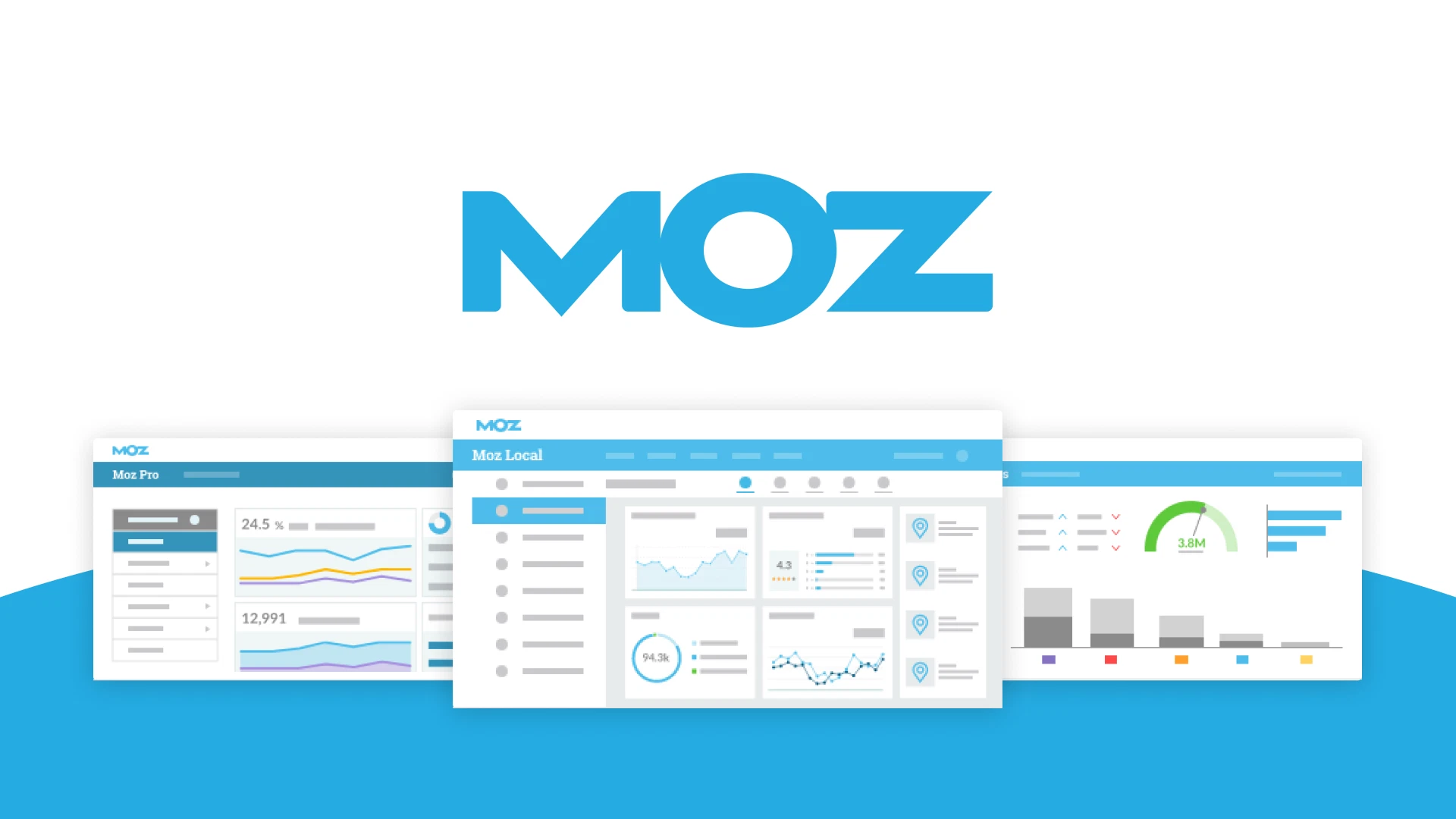Online brand management is an integral part of your marketing strategy. Even if it takes time and effort, it is not necessary to allocate a large budget to develop your brand – at least for the web. We will prove it to you in this article, where we have listed tips to capture the attention of your audience and improve your online brand management.
Table of Contents
ToggleDevelop a blog for online brand management
Your customers and prospects do a lot of research on the Internet. You must give them the opportunity to fall as often as possible on you and this is where your blog will help. Start by searching and analyzing the keywords used by your target and select the most relevant ones according to your activity.
Our advice: Feel free to select tags on which there are few competitors. You can more easily position yourself on it. It is then necessary to devote time to writing blog articles. If you do not have time to write, you can leave the assignment to a freelancer. The most important thing is to publish quality and value-added content for your audience. Each article will help improve your positioning on search engines and give you an expert image: a great opportunity to gain the trust of users.
Share and stay engaged on social media
Social networks are the ideal place to reach your audience and develop a larger community. Try to boost your popular content on Facebook and Twitter, ask your audience to give their opinion, retarget your visitors with personalized Facebook Ads according to their interest for your online brand management, use the popular hashtags associated with your industry, use influencers, etc. If all of this seems to take a long time, remember that tools such as Buffer allow you to automate this task. Social networks should not be overlooked if you want to increase your online brand management and he engagement of your audience.
Stay active with your community
The pure promotion of your content on social networks is not the only way to gain better online brand management. Have you thought about Quora, Facebook groups, Slack channels, etc? For example on Quora you can answer questions, exchange ideas or give your opinion. Take advantage of these interactions to talk about your brand. You will meet the needs of Internet users while promoting your products or services.
Become a source of content for the press
Who better than the press itself to bring you visibility, notoriety and authority? If the media are not easy to convince to share your content, they can distribute your information for free if you publish the good ones. This was also the case with the Red Bull Stratos, the jump in the space by Felix Baumgartner.
A major event during which the astronaut broke the record of the highest parachute jump. Sponsored and filmed by Red Bull, the online brand management hoped that the whole world speaks about it, and then : successful bet! Obviously, a large budget had to be allocated in this concrete example, but on a smaller scale you can conduct research on your sector of activity and share your results in a report. You can also publish on LinkedIn or Medium for example.
Turn data into beautiful visuals
Infographics, videos, ebooks or webinars are good ideas. You can indeed make content accessible in exchange for email addresses. Your mailing list will expand and you can spread the messages of your online brand management on a larger scale. Also remember that visual content is more readable and easy to share. An infographic made by your brand can easily become viral.
These little tips will help you increase your visibility on the web by reaching more users and promoting their commitment to your brand. There are, of course, many other methods. Examples include email campaigns, affiliation, SEO or advertising campaigns on Google or other sites. Although you always put the user at the justify of your concerns. It is him that you must reach and convince to use your products or services. Over time, word of mouth and user reviews will help make your brand more visible. Feel free to reach to us for more tips!
Online brand management has become a necessary aspect of any company’s growth and reputation strategy. The way a brand appears online and the perception it generates among users can define the trajectory of the business, especially in an age when most purchasing decisions are informed by digital experiences and online research. While traditional brand management involved television advertising, billboards, and print campaigns, today’s landscape is fundamentally shaped by search engines, social media platforms, content marketing, and user-generated reviews.
The dynamic environment of the internet presents both tremendous opportunities and considerable challenges. The most successful brands are those that learn how to balance authenticity with strategic visibility, crafting a consistent identity across platforms while also adapting to the nuances of each channel and audience segment. To understand why online brand management carries such importance, it helps to look at how consumers behave today.
Before making a decision to buy a product or sign up for a service, people will often read multiple reviews, browse a company’s website, scroll through social media posts, and even compare a brand’s messaging to its competitors. This process can happen within minutes or span several days or weeks, depending on the complexity of the purchase. In this sense, a brand’s online presence becomes its living, breathing storefront, open 24/7 to anyone in the world.
If the website feels outdated, the social media presence appears sporadic and tone-deaf, or reviews are overwhelmingly negative with no sign of response or improvement, potential customers quickly lose trust. On the other hand, a polished, professional online identity conveys credibility and shows that the company values communication, transparency, and engagement. One core pillar of modern online brand management is search engine optimization, often abbreviated as SEO.
This strategy involves optimizing a company’s website and content so that it ranks higher in search engine results when users type in relevant keywords. When prospective customers enter a query related to your field, they are far more likely to click on results appearing on the first page of Google. Multiple studies have shown that the vast majority of clicks go to the top three or four results. This is why brands that invest in SEO tend to enjoy consistent, qualified traffic over time.
SEO requires a combination of technical improvements, such as fast-loading pages, mobile optimization, as well as content improvements, such as publishing blog posts, guides, and product descriptions that align with users’ intent. While SEO can take months to bear fruit, it is among the most cost-effective methods to build long-term visibility. Beyond SEO, social media has emerged as one of the most impactful arenas for online brand management.
Platforms like Facebook, Instagram, LinkedIn, Twitter, and TikTok offer brands a direct line of communication to their audiences. Here, content can be more informal and interactive than what appears on a website. For instance, brands often use Instagram Stories to share behind-the-scenes footage, quick polls, and limited-time offers. On LinkedIn, B2B companies position themselves as thought leaders by posting industry commentary, case studies, and curated news.
The key to effective online brand management through social media is consistency and responsiveness. Posting randomly once a month is unlikely to build momentum. Instead, successful businesses develop editorial calendars, plan campaigns around seasonal trends, and monitor comments and messages so they can reply promptly. A related facet is reputation management. Even the most polished marketing campaigns can be undone if customers are consistently voicing negative experiences online.
Review platforms such as Google Business Profile, Yelp, and Trustpilot often rank highly in search results. This means potential customers will likely see those reviews before they even arrive at your official website. Smart brands monitor these reviews vigilantly, thank users for positive feedback, and address complaints with professionalism and empathy. When prospective buyers see that a brand acknowledges concerns and strives to improve, they feel more comfortable taking the next step. Over time, this approach strengthens credibility and loyalty.
Influencer partnerships have also evolved into a significant component of online brand management. Years ago, celebrity endorsements were limited to television and print media. Today, brands of all sizes collaborate with micro-influencers, which are individuals with a few thousand engaged followers, because these voices often command more trust than traditional ads, frequently sharing authentic stories about products, showing them in everyday use. This content resonates with niche audiences in a way that polished corporate messages often cannot.
By identifying influencers whose values align with the brand and negotiating fair compensation or product exchanges, companies can expand their reach and foster word-of-mouth credibility. Equally important is the strategy of content marketing. A robust one doesn’t just drive SEO or fill a social media feed, but it helps define the brand’s voice and establish expertise. Whether you’re producing in-depth white papers, concise blog posts, or entertaining videos, every piece of content should reflect the brand’s core identity and bring value to the audience.
Educational resources, such as guides, tutorials, or webinars, help solve customer problems, making your brand a trusted partner rather than a mere vendor. Over time, this builds goodwill and differentiates your business in a crowded marketplace. Visual identity cannot be overlooked in online brand management. A cohesive visual presentation across channels, including website, social media profiles, emails, and even digital ads, helps reinforce brand recognition. Consistent colors, typography, and imagery create familiarity, which in turn builds trust.
Think about some of the most successful brands online. Their visual presence is instantly recognizable, whether in a thumbnail on YouTube or a sponsored post on Facebook. Investing in clear, appealing visuals pays big in reinforcing your brand story and ensuring your messaging stands out in users’ crowded feeds. Email marketing remains one of the highest-ROI strategies for online brand management. Although newer platforms like TikTok often steal the spotlight, email allows brands to communicate directly with people who have explicitly chosen to hear from them.
Regular newsletters, product updates, and exclusive offers keep your brand top of mind. The tone of your emails can also humanize your business. Friendly, helpful, and authentic messaging can deepen the relationship with your audience. To avoid fatigue, emails should be well-segmented and personalized, reflecting the preferences and behaviors of each subscriber. A prospect who downloaded an ebook about cybersecurity will likely respond better to follow-up content related to that topic rather than a generic sales pitch.
Another factor that has grown in importance is data privacy and ethical use of customer information. Modern consumers are increasingly aware of how their data is collected and used. Transparent privacy policies, clear opt-in processes, and respect for user preferences are not only regulatory requirements in many jurisdictions but also crucial elements of online brand management. Mishandling customer data can quickly lead to backlash and long-lasting damage to a company’s reputation. A transparent online brand management, involving privacy, reassures users that their information is safe and valued.
Video content has surged to prominence as one of the most engaging forms of online branding. Short-form videos, live streams, and webinars provide dynamic ways to connect with an audience. Tutorials, product demos, customer testimonials, and behind-the-scenes footage can all build intimacy and trust. Platforms like YouTube, Instagram, and TikTok allow for experimentation and creativity, encouraging brands to showcase their personality. In particular, live video fosters a sense of immediacy and authenticity, as viewers can ask questions and receive real-time responses.
User-generated content is another valuable asset for online brand management. When customers share photos, videos, or stories featuring your products, they effectively become ambassadors for your business. Encouraging this kind of engagement, by creating branded hashtags, hosting contests, or simply reposting customer stories, sends a powerful signal that your business values its community. This content also functions as social proof, reassuring prospective buyers that real people are using and enjoying your offerings.
Community building itself is perhaps the most underrated facet of online brand management. Brands that succeed long-term don’t just broadcast messages, but cultivate a sense of belonging. This can take many forms, such as online groups, private forums, regular virtual events, or even shared projects. A strong community becomes a self-sustaining ecosystem where customers support and inspire each other, and where brand loyalty flourishes organically. Fostering this community requires commitment and a genuine desire to serve your audience beyond transactional exchanges.
At the strategic level, online brand management demands clear objectives and measurable benchmarks. It is essential to define what success looks like. Is it increased web traffic, higher engagement rates, improved conversion metrics, or enhanced sentiment ? Tracking analytics across channels helps you understand what resonates with your audience and what requires adjustment. Digital tools make it possible to collect detailed insights about user behaviors, demographics, and preferences, but the true power lies in translating this data into meaningful actions.
In a rapidly evolving digital environment, adaptability is also critical. Trends emerge and fade with startling speed. New platforms and technologies continually reshape how brands can communicate and engage. Those who remain flexible, by experimenting with new formats, staying attuned to cultural shifts, and evolving their messaging, are far more likely to maintain relevance. That said, while tactics may change, a brand’s core values and mission should remain steady, serving as the foundation upon which all decisions are made.
Ultimately, successful online brand management is not about quick wins or viral stunts alone. It is a sustained effort to build trust, deliver value, and foster genuine connections with your audience. While there are countless tools and techniques to help along the way, the underlying principles are universal, namely authenticity, consistency, responsiveness, and a relentless focus on understanding and serving your customers.
When approached thoughtfully, online brand management becomes far more than a marketing function. It becomes a powerful driver of growth, loyalty, and long-term success. Whether you are a startup looking to establish your presence or a seasoned enterprise striving to maintain relevance, the digital realm offers unparalleled opportunities to tell your story and build a brand that resonates.
Beyond these core strategies, brands must also pay close attention to crisis management in the online space. Even the most careful companies can face negative publicity, through a viral complaint, a controversial ad, or a service failure that generates public backlash. How a brand responds in these moments can define its reputation for years. Proactive online brand management involves preparing crisis communication plans in advance, designating spokespersons, and establishing clear protocols for responding quickly and transparently.
A prompt, honest, and empathetic response can often defuse anger and even earn respect, whereas silence or evasion tends to amplify criticism. Furthermore, localization has become an essential dimension of online brand management for global companies. Audiences expect tailored experiences that respect cultural nuances, language differences, and local consumer behaviors.
Translating content is just the beginning, as imagery, humor, and even colors can carry different meanings across regions. Brands that invest in local expertise and adapt their messaging accordingly demonstrate respect for their audiences and often see stronger engagement and loyalty. Effective online brand management is both an art and a science. It demands creativity, empathy, and adaptability, underpinned by data, strategy, and a deep commitment to the customer experience. The brands that master it don’t just sell, but build lasting relationships.









